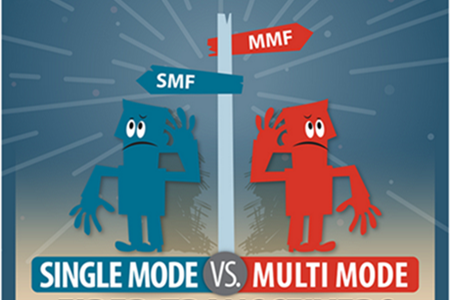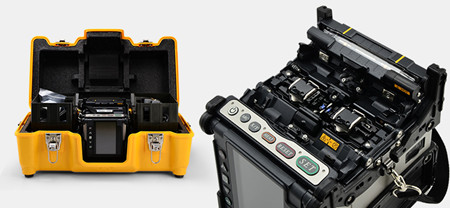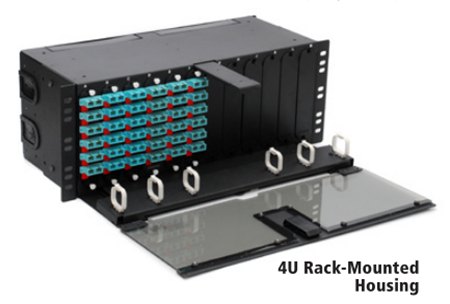Installing or designing network may pose a challenge as there are multiple optical solutions that meet the same specification or requirement. But by understanding the basic optical components and the specific performance requirements, you will be able to generate a cost-efficient bill of materials for your project. Thus before picking any products for your infrastructure, you must read this article.
Fiber Type
There are two basic fiber types: single-mode and multi-mode. Multi-mode fiber is graded by OM (optical multi-mode), the higher the OM grade, the better bandwidth performance you can expect. And it comes in both 50μm and 62.5μm core sizes with 50 μm multi-mode available in both standard (OM2) as well as a laser-optimized version (OM3/OM4). Single-mode are graded by OS (optical single-mode) and can run at OS1 and OS2, as described in TIA-568 C.3. Keep the consistency within your network is critical for long-term performance, therefore you shouldn’t mix new fiber type or performance with your old plant.

In addition, the cost of the components should be considered. The transceiver associated with single-mode fiber are more expensive than those for multi-mode. For example, the price of JG661A (compatible HP 40GBASE-LR4/OTU-3 QSFP+ transceiver) is much higher than JG325B (compatible HP 40GBASE-SR4 QSFP+ transceiver). The decision must be made to balance the performance and the cost. Single-mode system will provide for future expansion, yet multi-mode fiber is only for today and the near future. To sum up, single-mode fiber operate better at long reach while multi-mode fiber is ideal for short reach, choosing single-mode or multi-mode depends on your networks needs.
Termination Method
Deciding on a termination methods is typical affected by many factors. If your biggest concern is time, no epoxy/no polish connectors are probably your best choice. The fiber end faces are factory polished and easily installed with a tool kit. This types of termination method allows you to perform terminations quickly, but the cost is usually higher than that of epoxy and polish connector.
If your biggest concern is cost. epoxy and polish connectors might be a good fit because of their low initial price. This type of termination need considerable time to learn how to properly hand-polish connectors that meet specification, and it requires a large workspace to lay out the polishing papers, polishing pucks, epoxy, etc. If your work environment or network condition is not allowed, it is advisable not to select this method.
Fusion Splicer or Optical Connector
Keep in mind that whether to choose fusion splicing or a connector for your network will always need an experienced installer under adequate training. Fusion splicer, as we all know, is very expensive. If your company do not own one, it can be a large investment to make and you need to order the correct splice tray for your hardware and heart-shrinks to keep your splices intact. But if you already have a fusion splicer, fusion-spliced pigtails might be the right choice for you that can provide high quality results and easy to use in areas. The following picture shows a Fujikura FSM-80S Core Alignment Fusion Splicer.

Specifications, density, electronics interfaces and existing plant often drive connector choices. LC connector is favored for its maximum density and room-saving. It is also available in duplex from, which allows you to manage polarity by simply reversing the connector via a duplex clip. SC connectors feature an easy push/pull locking mechanism and are available in simplex and duplex forms. ST compatible connectors have a spring-loaded bayonet locking system that helps them stay in place but are only available in simplex versions.
Hardware
To determine the type of hardware you need, take into consideration the space that will be utilized for the network. If you are installing inside of a closet or other cramped quarters and need low density, wall mountable hardware is the best selection as it does not take up a lot of room. If racks are already in place, or if there is enough room to install them, rack-mount hardware is the best selection because it is sturdy and easy to access.

Additional Information
Designing a network may be a big project as you should take a lot of things into consideration. To make sure the high performance of you network, please think about all the aspects that I have written in this text. What’s more, there are three basic categories for cable: indoor, outdoor and indoor/outdoor. The types of cables you have to choose for your infrastructure depend on where the cables will be run. Fiberstore supplies a whole variety of optical equipment including fiber optical cables, optical transceivers, fusion splicer and optical connectors. Come to us to help your data transmission initiatives for future proof.
